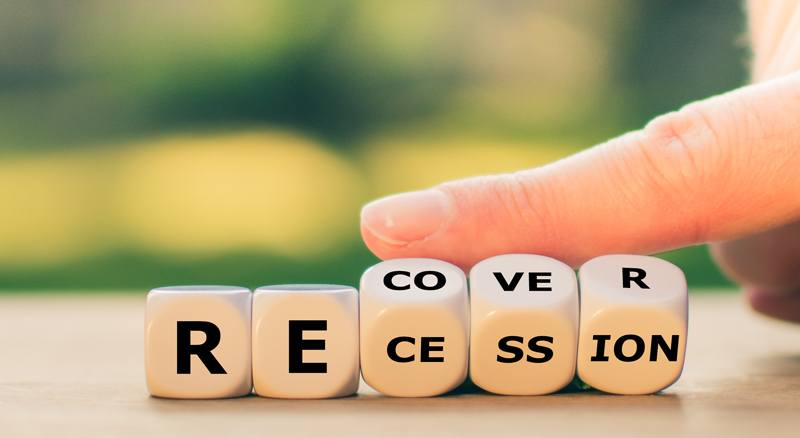
I once had someone working in my company who graduated from an Ivy League law school and became a partner in a major American law firm. He was a former college athlete, and success was written all over him. Unfortunately, he was prescribed various opiates due to a back injury, and he became slower and more incapacitated over the years. It got to the point where he could not understand basic ideas and be coherent—and I do not know what happened to him.
There are many common reasons why people do not become the person they are capable of being. I think a lot of it has to do with the people we surround ourselves with and, most importantly, how much we are willing to be honest with ourselves about why we are not doing what we want to do.
Most people you meet—I included—will have one of the most common reasons why they are not the person they once were or want to be. The fact is that most people out there are nowhere near the person they are capable of being. You should not be happy, successful, content, or living life to your full potential.
Some people keep convincing themselves that they are not capable or lucky enough to live the life they want to live. I do it. You do it. Most people do it.
Just think about (1) what interests you, what you do for a living, or would like to do, (2) who is your age and doing better at whatever that is, then (3) ask yourself why you are not performing as well as you should be and list all your excuses. You will probably find a lot of people with these excuses.
When people are not living up to their full potential, they often hide behind excuses, other people, circumstances, geography, illness, and a great variety of other things to explain their lack of success, happiness, fulfillment, or otherwise. Unfortunately, this is just how it is.
Here are more reasons: Two Things the Most Successful 5% of Attorneys Do That the Rest Do Not: Ignore this Career Advice at Your Peril.
Lawyers have a ton of excuses for their lack of success. These excuses are as old as the hills.

Here are some of the biggest ones:
-
If I Had Gone to a Better Law School

Attorneys that did not go to the top law schools are always happy to tell you why and make excuses. These attorneys often tell you they could have gone to a better law school if they wanted to.
The Truth is You Went to the Law School You Did Because It Was the Best Law School You Could Get Into, Or You Did Not Think Through (or Care About) Where You Went to Law School.
You did not go to a better law school because:
- You did not work hard enough in college to get into one;
- You were not smart enough in college to get good grades;
- You did not manage your full time in college well enough to get good grades;
- You were not smart enough to do well on the LSATs or did not study for them;
- You made a wrong decision about where to go (took scholarship money over the best possible school you got into);
- You did not apply to enough places;
- You did not realize it was essential to go to a good law school;
- You simply made the decision you did.
It could mean that you are lazy, took classes that were not too hard, or not as bright as a lot of your competition. The LSAT is an intelligence-type test, and the most intelligent people do the best on it. Everyone I know who got the 1500s on their SATs also kicked ass on the LSAT regardless of their academic performance. You either have it or not.
Not having gone to a good law school may hold you back from getting certain jobs in the future. People will assume you may not be as intelligent or did not work hard in college.
If you are not as smart as other people, you better compete on a different playing field and go into practice areas, firms, and jobs where people are not your competition. You probably want to avoid practice areas and firms where you will be competing directly with people. They will run circles around you, and you will lose and feel bad about yourself. The most brilliant attorneys can often see stuff other attorneys cannot, process information faster, and reach better conclusions. That is all there is to it. Lawyers sell their intelligence for a living.
You need to go into practice areas, jobs, and places where your skills matter. Many practice areas do not require you to be the most competent person in the room—immigration, personal injury, employment, insurance defense, workers compensation, etc. For example, some lawyers also sell their ability to argue and intimidate people—and that often does not require a ton of smarts either.
When I was in college, I remember taking many seminar classes where people would sit around a table and discuss many cases. I did well in these classes because I could argue. However, if I were in a science class with these same people (where my skill was not of value), I would have gotten my ass kicked. So, I avoided classes I knew I would not do well in.
I found these classes quite exciting and learned that if I spoke louder, was more enthusiastic, and understood the material better; I could get other students to stop challenging me and sit there unhappy and allow me to dominate the class and get the best grade. I learned that if I prepared exceptionally well for class, I would understand everything much better and win most discussions—even though the point was never winning. I would get good grades and discourage other people, and they would not get good grades because I would be better prepared, more insightful, and more convincing. I am not sure this was a positive thing, but it is what it is.
What was happening here was not good. If you stand back, you can see that I harmed others by intimidating them. It was immature. I prevented others from advancing and probably made some people unhappy. It is the law of the land: People dominate one another. You need to be in situations where you can succeed. Again, I would have lost in science classes.
Learn that People Will Judge You Based on Where You Went to Law School and Realize that You Are Judged for All of Your Decisions.
You are responsible for your choices, opinion, and actions. You should not be competing with the most intelligent people directly. If you make mistakes, learn from them. The odds are you could have made better decisions and done some stuff better. This also means you should not screw up again and not make the same mistake again. The world does not care about your excuses. If you fail in the future, it will not be because of your law school; it will be because of you and your decisions.
In The Long Run, It Is Not Where You Went to Law School That Matters.
No. Some of the most successful attorneys out there went to the worst schools. All that matters in the real world is what you produce. You should do the best you can and compete in the areas where you are most likely to succeed. You will be defined in some circles by where you went to law school, but there are a million things you can do to stand out besides that. Many attorneys practice into their 90s. If you think this will define your legal career, you are wrong. What you do with what you have is what matters the most.
Here is a guide to law school rankings: DECODING LAW SCHOOL RANKINGS
-
If I Had Done Better in Law School

Attorneys who did not excel in law school will tell you that this prevented them from getting the best job opportunities. They will tell you that they did not do well because they got sick, someone else got sick, they slept in before an important exam, and make up all sorts of reasons.
You Did Not Do Well in Law School Because You Either Did Not Work Hard Enough, Were Outmatched by Better Students, or Just Did Not Have the Aptitude for Taking Legal Exams
You did not do well in law school because possibly you: (1) did not work hard enough; (2) have as much aptitude for the practice of law as your competitors in your school; (3) may not like learning; (4) caught on more slowly to the material; (5) did not manage your time well; (6) are just not good at this stuff; (7) were not committed; or (8) have personal demons that made focus difficult.
If You Did Not Do Well in Law School, You Got Off to a Poor Start
This was a poor start. Generally speaking, you failed to make progress in law school due to either your lack of intelligence, your inability to catch up quickly, or your failure to do what you should have been done. You screwed up. You may have gone to a law school where everyone was much more intelligent than you but would have been better off at a lesser law school. Until law school, everything may have come quickly for you, and then you may have suddenly struggled to work hard. I have no idea.
This also means that you need not make the mistake of giving your all to your future employers. If you let your guard down, it will hurt you badly. This needs to stop now.
You Will Not Be Rewarded Early in Your Career if You Got Bad Law School Grades
No one is going to care about your grades after you have been out of school for a year or so. However, the lesson is that actions have consequences. If you got better grades, you might have gotten a job with a better firm. You cannot expect to be rewarded in life, or by employers, for subpar performance. Your job is to excel and do your very best.
After a Few Years, Your Law School Grades Do Not Matter
Grades only matter when compared to other graduates of your school when everyone is searching for a position in your class—it is the only thing employers have to compare you to. Law school grades are practically meaningless a few years out of law school. By that point, employers are most concerned about what you are doing now and the experience you are getting – that is all.

Here is an article about showing up: Showing Up: The Difference Between Those Who Get Hired and Advance in Law Firms and Those Who Do Not
-
If I Had Gotten a Job with A Bigger Firm During My Second Summer of Law School

To get into the largest and most prestigious law firms after graduation, attorneys are expected to get summer associate positions with large, prestigious law firms. If an attorney cannot get a job with one of these firms after their second summer, the odds are very slim they will get into a large firm right after they graduate, making it more challenging to get into one later. Consequently, many attorneys blame their failure to succeed in the legal profession because they did not get a job with a big law firm during their second summer of law school.
You Did Not Get a Job with a Large Law Firm Because the Law Firm Had Better Applicants
You did not get a job with a better firm during your second summer of law school because: (1) your law school is not good enough; (2) you did not do well enough in law school; (3) you did not interview well; (4) you may have personality and/or appearance issues that interfered with you getting a job; (5) you did not want a job enough; or (6) you did not work hard enough tracking down a position and do whatever it took to get one. Regardless of why you did not get a job, it is your fault.
Large Law Firms Did Not Hire You Because You Did Not Look Like the Best they Could Do and You Did Not Package Yourself Well Enough
This means you did not have the goods to sell. Employers were not buying what you were selling. You did not pack your goods (yourself) well enough to be purchased by the sort of employer you wanted to sell them to. The people the law firms were buying looked better than you on paper and in person. You were goods they did not want.
When I was in law school and interviewed with firms for summer jobs, I was lucky to get hired. The first several weeks of on-campus interviewing crushed me. In my mind, interviewing was all about talking about how good I was and what I had accomplished. I assumed that the more I brought attention to how great I was, the more employers would want to hire me. My grades were pretty good, and I was at a top 10 law school, but that was not something people wanted to buy. People were interested in purchasing someone smart, who kept their heads down and worked hard.
I was in the same section with a guy who was not as good of a student as I was and was a meek, quiet son of a conservative preacher. At the time, I was very interested in working for a particular law firm in Detroit because I was from Detroit. The firm had the impression that it was the ultimate place to work if you were from Detroit. I wanted to work there. I had met with this law firm after my first semester of law school, and they had indicated that they hoped I would apply after my first year of law school. I applied after my first year of law school and went in for a day of interviews and made sure to tell them everything I had accomplished over the past year—from grades to law review and other honors. I figured I was a shoo-in, but during my lunch with them, I realized that one of the older associates was toying with me and making fun of me by continually asking me to talk about my accomplishments. It was at that point I realized I was not interviewing well.
The guy in my section was not even from Detroit but sent his resume to the firm because he had been in Detroit for bible camp during his first summer of law school. The law firm is a very Jewish firm with many strong personalities, and he was not even that great of a student, and I could not imagine him getting a job there—but he did. In contrast, the firm rejected me after stringing me along for a few months.
I only eventually got a position after realizing that I needed to tone myself down and no one cared about my accomplishments—I just needed to look like a good worker.
Incredibly, the guy from my section who got the position with the firm ended up working for another religious organization the following summer and did not even want the job he got with the law firm. That should show you just how badly I was interviewing that he could get the position with lesser qualifications and not even wanting the job. Also, and quite humorously, he probably would have been one of the only Republicans in the entire firm if he had taken the position.
Law Firms Hire the Best People they Can Get—Just Like You Take the Best Job You Can Get
If you have a setback and do not get a position with a good firm after your first year, you need to realize what you did wrong. In my case, I realized I needed to start asking questions and listening to other people. I realized that I was not there to talk about myself. To succeed, I had to be a better interviewer. Relationships matter more than grades when it came to interviewing.
If you did not get a good job, you probably did not deserve a good one. You need to be more valuable and look better in the market. You need to work harder in the future and appear to be a better person to employers. You need to make yourself more valuable in the eyes of employers and play the game. You need to research and apply to as many places as possible instead of giving up.
If you did not get a good job, you may also not have sold yourself for the job you wanted.
The Law Firm You Start at Does Not Determine the Course of Your Legal Career
It does not matter where you were as a summer associate. Once you are a year or two out of law school, all law firms care about is your experience. They are asking: (1) if can you do the job, (2) if they can manage you, (3) if you will do the job long term, (4) if they like you; and (5) if you want the job. It also does not matter where you were as a summer associate because you can often get a position with a large law firm during your third year of law school. Then, if you do not get a job, you can get a federal clerkship, which makes it easier to get into a major law firm later. The fact is that if you keep trying, stuff will open up.
Here is how to get a job in a major law firm:
How to Get a Job with a Major Law Firm if You Did Not Go to a Top Law School or Are Not Working at a Top Law Firm
-
If My Law School Had a Better On-Campus Interviewing Program for Law Students

Law students often believe that their fate is sealed because their law schools do not have good on-campus interviewing programs. The quality of your school's on-campus interviewing program impacts the quality of employers (and quantity) that come to your school to interview law students. Many attorneys believe that their fates are sealed if good employers do not come to your school to interview (or enough of them).
It is Not Your Law School Career Service Office’s Fault You Did Not Get a Better Summer Job—It is Your Fault
Your law school's career services office and on-campus interviewing at your law school may have something to do with whether or not you get a position and can help you, of course, but that does not mean that they are responsible for whether or not you succeed. You are responsible. You are also responsible for choosing to attend the law school you are going to.
No one is stopping you from applying to many different places outside of those that come to the school. No one stops you from networking and getting out there and meeting people. No one is stopping you from asking for informational interviews. No one is stopping you from learning about how to put together a fantastic resume. No one is stopping you from writing a great cover letter. No one is stopping you from doing tons and tons of research to find the right employer. No one prevents you from volunteering with good attorneys to get recommendations you can parlay into jobs with suitable employers.
Your law school career service’s office is not your problem: You are.
If You Wanted a Good Summer Job, You Would Have Pounded the Pavement and Marketed Yourself Well
If your law school career service's office is not good, then all that matters is that you need to take care of yourself and seek out jobs and information that help you. That is it.
When I was not getting callbacks in interviews in law school, I went to see the Dean of Career Services at my law school—I was concerned. He was an old Southern gentleman and very nonchalant. When I explained that I was not getting callbacks, he opened a folder on his desk with my grades and just said, "you will do fine." He was right, but I barely got a position in the summer. After 20+ interviews with no callbacks, I was not encouraged, which was the extent of career counseling I got.
All of this means that you and you alone are responsible for getting a position. You cannot blame any of this on anyone else. This is your issue and responsibility.
You Are Responsible for Getting Your Summer Associate Job—No One Else
You need to understand that you are ultimately responsible for getting a job. You cannot rely on others and blaming them does no good. Attorneys are expected to do research, network, get out there and get results. It is your responsibility. Never rely on someone else to protect your livelihood—you are ultimately responsible for everything.
It Does Not Matter Where You Work in the Summer of Your Law School—Your Career Could Last 50-Years or More
Most attorneys practice well into their 60s—many decades longer. You cannot blame a career services office for anything that goes wrong in your career. Doing so is complete crazymaking. In the long run, your success will be determined by your choices and not what other people do.
Here is an article Exploring Summer Legal Job Opportunities
-
If I Had Not Graduated During a Recession or Been in a Recession

Many attorneys experience all sorts of issues because of recessions. If you graduate during a recession or experience a severe recession during your legal practice, all kinds of negative things can happen. You can have offers withdrawn, never get offers, lose jobs, and many more concerns. In big markets like New York and Silicon Valley, an entire class of attorneys often lose their jobs when they graduate during recessions and spend a long time trying to find new ones. Many people who graduate during recessions never find suitable positions and are forced to start not in law firms but working for the government, public interest organizations, or small law firms. Many people in large law firms lose their positions and never get jobs with large employers again.
If You Graduated During a Recession, You Could Have Found a Job if You Were Better Prepared
If you were in a recession and experienced a setback, you were not well prepared for it. You should have thought through your options and been better prepared. If you did not land on your feet, you should have set yourself to get back on your feet later. You made mistakes, and this likely hurt you. You either chose the wrong practice area, wrong location, wrong firm, or did not ask the right questions. If there were people in your class who got positions and you did not, you likely could have done something different. If there were people in your firm that did not get laid off and you did, you could have made better friends, do better work, or bill more hours. Most law firms always keep around their most valuable people.
If you did not land on your feet, you did not work hard enough, network enough at upcoming events, apply to enough places, prioritize your job search, or convey the value you could provide employers well enough. There were things you could have done better, and you did not do them. You need to learn from your mistakes.
All Attorneys Have Bad Stuff Happening to them in their Legal Careers—And Recessions Are One of Those Bad Things
Bad stuff happens to everyone. We all are responsible for the stuff that happens to us. If we choose not the be accountable, it does us no good. We cannot blame the economy for our lack of success because others can succeed under the same circumstances.
The Sun Does Not Always Shine Forever and Bad Economies Happen to Every Attorney at Some Point in Their Legal Careers
In 2008 and 2009, I had a large student loan company that made loans on behalf of the government. My company had 850 employees and was doing over $5,000,000 in revenue. Then, out of nowhere, the Education Department came and stated that private lenders could no longer do federal student loans, and the company was shut down overnight. I had to let go of over 500 employees and restructure the business. For the next several years, I struggled to regain my footing and cope with selling off properties (I had wildly over-invested in commercial properties when the market was better. Because we were in the middle of a financial crisis, I had all sorts of other issues to contend with.)
I made a ton of mistakes. I learned that: (1) the sun does not always shine; (2) to be more careful with investments; and (3) not to be dependent on the generosity of others (here, the government) for my ongoing success. It made me a better person.
If you graduated during a recession, your lesson is that the market can go against you, and you need to be ready. You need to have more contacts, do a better job for your employers, and have more options in the future.
It Does Not Matter if You Graduate During a Recession
None of this matters in the long run. The only thing that matters is how you respond. People care about your skill and whether you get results. It is your responsibility to be a reasonable attorney. Develop a personality that employers and clients like and succeed in. Everyone experiences ups and downs. Your ability to overcome these will ultimately make you a better and more resourceful person.
Here is an article about exploring summer legal jobs: Exploring Summer Legal Job Opportunities
-
If I Had Not Failed the Bar (Once, Twice, and More Times)

Failing the bar exam can create a cascading effect that can hurt your legal career. First, it will make getting your first job difficult. Second, if you are employed when you fail the Bar, it will hurt your self-esteem and how others view you. Third, your employer may fire you if you fail it once, and they may fire you if you fail it twice. Regardless, failing the Bar is a blow to career aspirations in the short term and something that you will not like. You may lose your job and have to find a new one after passing the Bar. After failing the Bar and losing a job, you may have difficulty getting a position again. After passing the Bar, the position you get may not be as good as the position you had originally. Because you failed the Bar, people may believe you do not have the same aptitude for the practice of law as your employer and give you less work, or not advance you, until you prove yourself.
If You Failed the Bar Exam, You Did So Because Others Were Better Prepared Than You
You failed the bar exam (one or more times) because you were not better prepared and did not take it seriously enough. You did not spend enough time studying and getting ready for the test. You did not make sure you knew the material inside out. Anyone capable of graduating from almost any law school can also pass the Bar. You spent three years in law school studying and yet you were unwilling to dedicate your heart, mind, and soul to pass the most crucial exam of your career by over-preparing. You did not pass because you were not ready for the exam.
An attorney's job is to be over-prepared for whatever challenge your client is facing. When preparing for the bar exam, you are the client. You did not defend yourself and prepare for your "trial" when you needed to. You may have wanted to fail because you did not believe you should be an attorney. You may not believe in yourself. You may be afraid of being an attorney and what it means. Whatever the issue, you should have prepared better and you did not.
What it Means for Your Legal Career if You Fail the Bar Exam
Some of the smartest people I know have failed the bar exam numerous times. They went to Yale Law School, Stanford Law School, Harvard Law School, and other equally amazing places and are incredibly smart people. Some of these people never passed the bar exam, but most did eventually. I think that in every case, the people that did not pass the bar exam did not because they were either: (1) lazy about studying; (2) arrogant that they would pass because they had always done well on exams; or (3) subconsciously wanted to fail and made themselves fail because they did not want to be attorneys. If you failed the bar exam and have not passed yet, you can pass but you just need to spend at least a few months drilling this stuff into your head. You need to decide how bad you want this and be serious about being an attorney.
What You Should Learn from Failing the Bar Exam and the Lesson From It
Being a good attorney is all about preparation, preparation, and preparation. If you are going to be a good attorney, you need to prepare for every battle in the long run. You need to be the best-prepared person in the room to be good at your job. If you do not prepare, you will hurt your clients and have no business being an attorney.
The lesson of the bar exam is that you need to prepare your hardest. This is what being an attorney is about and how you help clients. This is what you need to do to be a good attorney, and you need to learn from it. The consequences that you suffer from not preparing for the bar exam will be much smaller than your clients will suffer if you do not prepare for their matters.
Some of the worst things that have happened to me in my life have been caused by attorneys who ignored small details. I once lost millions of dollars because an attorney did not adequately prepare a contract for me. I have been involved in litigation because attorneys missed issues in contracts. I have lost cases because attorneys missed issues. A lousy attorney who is unprepared can do massive amounts of damage. You need to prepare. The life and welfare of your clients are at stake anytime you work as an attorney—and if you are ill-prepared, you can do a ton of damage.
It Does Not Matter in the Long Run if You Failed the Bar Exam
In the long run, passing the Bar does not matter. Whatever happened to you with the bar exam will be long forgotten after you do pass. People will judge you for the quality of your legal work and not a mistake you made in the past. What matters is that you should learn that being poorly prepared can hurt you, and you should never make that mistake again.
Here is an article on bar reciprocity: What is Bar Reciprocity and Which States Allow You to Waive Into the Bar?
-
If I Had Started My Career at a Better Employer
The better your first firm, the easier it is to move to a better firm later on. Once you get a position with the best law firms, other firms will assume you have certain work habits and operating methods that will make them far more interested in hiring you later on.
You Did Not Get a Job at a Better Employer When You Started Your Legal Career Because There Were Better Applicants for the Jobs You Applied to
You did not get a position at a better firm when you started your career because you either did not have good enough law school, get good enough grades, or try hard enough to get a good position when you were looking for your first job. You may also not have developed good enough interviewing skills or learned enough about how to get a good job. You may also have taken the first position you were offered or not understood the importance of going to the best employer.
The Worse Firm You Start Your Career at, the Bigger the Obstacles You Will Face in the Future
If you did not get the best position possible, it means you were not sufficiently marketable to be picked for a position. It means that you are starting your career with a disadvantage and need to keep growing and getting better if you want to be employable with the best firms in the future. It means in the future, you will need to look the most marketable to employers you possibly can and need to make yourself as attractive as you can to them.
You Are a Product and the Sooner You Understand that the Better
Everyone is a product. If you are going to sell your product for the highest price to the most discriminating buyer, that product needs to be better than the buyer's other options. You need to improve yourself constantly so that you can get a position with a better employer next time. This may mean doing things like specializing in a marketable practice area, billing a lot of hours, networking and coming to the attention of attorneys in better firms, bringing in business, becoming an expert in your practice area—or even moving to a market where you are more marketable. Regardless of what you do, you can learn that you will be the most marketable in the future if you discover that you need to look the most marketable compared to others.
It Does Not Matter in the Long Run the Quality of the Law Firm You Start Your Legal Career at
The employer you start your career with does not matter. In fact, with only a few exceptions, most legal employers love to see upward mobility on your resume. Far too many attorneys start at significant firms, take it for granted, do not work hard, get entitled, negative, and more. Employers are always trying to bring in hungry and excited people to be there. It is good for business.
I have seen countless attorneys who started their careers in small firms and end up at huge firms through a series of smart choices and well-timed moves. The firm you started at gives you something to feel proud of moving on for. Everyone loves a good story about people improving and getting better and better. Large employers love to believe they are available to people who may have gotten a rocky start. Where you start your career does not matter in the long run. If you start at a smaller and less prestigious firm, you will feel better about your eventual success.
-
If I Started My Career in a Larger Market or Worked in a Larger Market (or if I Did Not Work in a Small Market)
If you want to work on the highest-profile deals as a corporate attorney, you most often want to work for a big firm in New York or the Bay Area. For example, I was reading the autobiography of Michael Dell last night. He was talking about how he was trying to take his company private. Despite working and living in Austin, he was flying to New York and working with Debevoise and Wachtell Lipton on this. He was not working with firms in Austin (and there are tons of excellent ones there).
The larger the market you are in, the more matters you are generally exposed to, the more sophisticated the work, the more money you can earn, and the larger clients you can bring in. If you want to be a powerful attorney, you will often be better served in a significant market than in a smaller one.
You Started Your Career in a Smaller Market Because that is Where You Chose to Be
You are in a small legal market because that is where you want to be. No one forced you to be there—you are there. Regardless of your status in life, you could be in a larger market if you wanted to. You may have a family, a house, or other attachments, but that does not mean you could not be in a larger market if you wanted to.
You may be in a smaller market because of others, or you may be there because it is where you went to law school, and your law school is small and local, and this was the only place you could get a job. It does not matter why you are in the market and why you could not get a job elsewhere—it is what it is. You are there because you did not take the actions to be in a larger market, and you are going to stay in a smaller market until you make yourself attractive to employers in larger markets.
Larger markets are more competitive places to get jobs because the employers there have a lot more choices on who they will hire. You need to look like a better candidate on paper to be hired in larger markets. If you made yourself a more attractive candidate to larger markets, you could get hired.
What it Means if You Started Your Legal Career in a Smaller Market
If you are in a smaller market, that is what it is. You can make the most of it and do the best you can, or you can move markets. I have seen plenty of attorneys in very small markets become incredibly successful. You can succeed wherever you are. If you are skilled enough and offer enough value in the market, large companies will work with you and your firm regardless of where you are—but there are some limitations. You cannot litigate a giant antitrust case in New York from a few-person law firm in rural Nebraska – but heck, even that might be possible.
Major companies use small law firms all over the country for various things. I worked with a small three-person law firm in a small town in the Rocky Mountain state not too long ago doing patent work for Microsoft.
If you are unhappy with your market, you can also move. You can take the bar exam, study the market, and then apply for jobs. You can make yourself attractive to firms in larger markets by becoming as well versed as possible in your practice area. You have a lot of options.
Where You Choose to Settle Down and Practice Law Impacts Your Future Prospects
The choices you make matter. Where you choose to settle down impacts the sorts of issues you will be exposed to. You can make yourself attractive to local employers and clients or even make your firm attractive to larger clients in major markets. If you are in a smaller market, you can also choose to be more resourceful and use this as a benefit and not a limitation.
In the Long Run, the Size of the Legal Market You Start Your Legal Career in Does Not Matter
If you allow it to limit you, then the market you are working in does matter. If you do not allow it to limit you, the sky is the limit. Ultimately, regardless of the size of the market you start your career in or are working in now, you can relocate to a larger market if you want to and look like an attractive candidate to employers.
Here is the 2020 State of the American Lateral Law Firm Market Report: The BCG Attorney Search 2020 State of the American Lateral Law Firm Market Report
-
If I Did Not Get Laid Off or Fired
Attorneys get laid off, fired, and experience all sorts of career setbacks. A recession usually occurs every eight years or so, and as a result, significant cases employing hordes of attorneys go away. If you work for a law firm, there is a good chance you will be laid off at some point. Moreover,
- People not getting along (not everyone is compatible),
- People making mistakes (no one is perfect),
- Humans being animals (attracted to one another and acting stupid),
- Law firms being competitive and not having room at the top (needing to push people out),
- People making dumb remarks (both sober and not),
- People upsetting clients,
- Law firms getting rid of practice areas,
- People taking sides in disputes,
- …and who knows what else will all but guarantee you may lose a job at some point.
Getting laid off, or losing your job can be a short-term setback. Regardless, once you lose a position and are laid off, it becomes extremely difficult to find new positions. This is primarily so because new employers may perceive you as either damaged goods, uncommitted to practicing law, or someone who (for whatever reason) was not valued by their last employer. Instead of taking a chance on you, most employers in this situation prefer to hire others so they avoid this risk.
Once an attorney is laid off or fired, it can often take them some time to find a new position. The next position is often not nearly as good as the last one. The attorney then has to move up to a better firm after getting hired by the lesser firm. This can set some careers back by years, and if the attorney is not hungry and motivated enough, they may never recover.
You Got Laid Off from Your Legal Job Because You Did Not Have Enough Allies in Your Law Firm
You would not have lost your job if you had allies in your firm and more people protecting you. You would not have lost your job if you were perceived as having more value. You would not have lost your job if you had chosen a more stable employer. You would not have lost your job if you had a better record and the law firm was concerned about losing you. You would not have lost your job if you were more connected politically in your firm, could have seen it coming, and gotten a new job before you were let go. You might not have lost your job if you had a better attitude, were more liked, did better work, or did not make a mistake. Perhaps it was no fault of your own, but you should think very carefully if you had any role in this whatsoever.
If You Are Laid Off from a Legal Job, it Means You Were Not Providing Enough Value to the Law Firm to Justify Your Salary
You were let go because either you were not providing enough value in the market, or your firm was not. You need to be better positioned in the future and choose employers where you believe you will have sufficient security. If you have lost your job, proving you are an excellent attorney and advocate will mean aggressively getting yourself a new job as quickly as you can—and hopefully a better one.
What You Should Learn from Getting Laid Off from a Law Firm Job
You need to make sure you do not make the same mistakes again. You need to make better decisions in the future. You need to realize that you are responsible for keeping your position and take action to do so.
It Does Not Matter in the Long Run if You Are Laid Off from a Law Firm Job
Losing your job does not matter in the long run. No one will care if you got fired after you get a new position. The only thing that matters is what you do with this information and realize what you could do differently to prevent this in the future.
-
If So and So Did Not Have it Out for Me (If I Never Worked With a Certain Partner, Was Liked Better By Someone and Not Disliked)
In one firm I worked in, the partner was so brutal that after working with her, people seemed to be so traumatized that they went into alternative careers. One Columbia Law School graduate became a waiter. Another fifth-year attorney who graduated from the University of California – Berkeley Law School became a carpenter. She was brutal to people who worked for her for reasons I still do not understand.
I have seen countless attorneys be destroyed or hurt badly by working with the wrong people—especially earlier in their careers. Attorneys are so upset by this that they often give up on the practice of law and have horror stories that they tell anyone willing to listen for decades. Their self-confidence is often hurt. They are so damaged by these experiences that they never recover.
You Made Enemies in Your Law Firm Because You Did Not Make the Right People Like You
In a jungle, you have your big gorillas and your small ones. The gorilla who is able to intimidate most other gorillas gets the most bananas (and the best mate choice). This is how it works in the jungle with gorillas, and it also works this way in law firms and legal environments. It is how mammals and other species establish dominance and eliminate real or perceived threats.
In most human interactions that go south, there is a subtext that you did something that made the person dislike you—but maybe not. The truth is that if someone is out to get you and had it out for you, you might have done something wrong. You might have intimidated them and made them think you thought they were not as smart as you, that you knew better, that they were making a mistake, who knows. Instead of helping you if you made an error, you made an enemy.
In my company, I typically will only have it out for someone if they are unwilling to learn from their mistakes, pretend they know and understand something they do not, are underhanded or insubordinate, do not follow instructions, do not do what they are asked, repeatedly make mistakes, talk behind my back, or seem to put their interests ahead of those of the company. These are all mistakes attorneys and people make in all personal dealings and businesses that make enemies.
Sometimes, I just believe someone is too incompetent, over their head, and has to go.
If you made an enemy, or someone had it out for you, the odds are excellent you did something to cause this. You need to understand your role in this—even if it just means avoiding people like this in the future.
You Need to Address Your Personality and Work Issues to Survive in Any Law Firm
If you made an enemy in the past or currently have one, this means that you made some sort of mistake that will follow you if you do not address it. In time, this will go away because someone who does not like you has no control over you in the long run. You need to put yourself in a role where this person cannot negatively affect your future. You need to assume control and responsibility for your life and not be held back by someone's negative opinions of you.
If You Upset or Challenge More Powerful People in Your Law Firm, You Will Likely Lose
If you go up against someone in any employer with more power and influence than you, the odds are you will lose. You need to be careful and realize that upsetting people you work with come with consequences. Also, there are many crazy people out there, and you will be very well served avoiding them in your life and career. The last thing in the world you should ever do is engage with people you believe will hurt you. Avoid them.
In the Long Run, It Does Not Matter if You Make Enemies in Your Law Firm Provided You Do Not Keep Repeating this Mistake
Politics, like and dislike, are part of all employers. It does not matter in the long run if someone dislikes you or has it out for you. These are short-term issues that should resolve themselves with you avoiding them. You either play the game or go somewhere where people like this are not tolerated. In most instances, you are better off avoiding politics altogether and concentrating on your job. You will get the best results from this in most firms.

-
If I Did Not Have to Work So Many Hours, Were in a Different Practice Area, Were Not at Such a Large Firm With High Billing Rates, Did Not Have So Many Conflicts at My Firm, or Could Bring in Smaller Matters, I Would Have Time to Bring in Business (and Would Make Partner, Been a Partner, Make More Money as a Partner)
Attorneys' careers often stop progressing or stop entirely due to a lack of business. They blame all sorts of outside circumstances (people, places, policies, and more) for their lack of business and inability to get it.
The Truth About All Your Complaints About Your Law Firm Job: It is On You
If you wanted to bring in business, you would. Attorneys in your firm and other firms do it all the time. They do it when they are billing a lot of hours, they do it when they have high billing rates, they find clients where there are no conflicts, and they get it done. The job of an attorney is to find solutions and bring in work. You need to figure this out, and it is your responsibility. The only thing stopping you from building a book of business is you. You are either afraid to do so, too lazy and comfortable to do so, not willing to learn to do so, not able to market yourself and your firm well enough, and have not made yourself worthy of bringing in the sorts of clients you need to bring in. You have not laid the groundwork to bring in these clients and have no one to blame but yourself. If you continue with this nonsense, you will never be in the position you need to be to reach your full potential.
If You Want to Do Well in Your Legal Career, You Should Not Be Controlled by External Factors
This means that you allow yourself and circumstances to limit your potential to grow as an attorney. This means you need to do things differently and make changes. You need to be smart and figure out how to get this done – now.
What You Can Learn from All Your Complaints About Your Law Firm Job
If you do not have a business, you need to learn to get this done now. You need to carve out free time to make this happen. You need to learn from people bringing in business and discover how they are doing it. You need to either do this or find an employer where this is unnecessary. It is your responsibility and no one else's.
Complaints About Your Law Firm Do Not Matter in the Long Run
It does not matter if you start fixing what you did not do, or did wrong in the past, now. Many attorneys are late bloomers, and there is nothing wrong with you being too—but you need to fix this now. You need to start now.
-
If I Was Not a Woman, a White Male, Black, Gay, Handicapped, Born in the United States, Spoke Better English, Had a Less Ethnic Name, and On and On and On
A few weeks previously, I was talking to an attorney in a law firm who believed that he had not been made a partner because he was a white male and not a woman or diverse—he believed he was more accomplished than a couple of other people he labeled as “diverse” who became partners in his firm instead of him.
If people that are not minorities are complaining about discrimination, then I guess it is open for everyone to complain. Everyone is upset about something.
It is not my role to comment on diversity in the legal profession, but everyone believes they are held back because of their race, sex, or sexual preference. That may be so – but if you think this is holding you back and making success difficult, you have to find someone else to explain your lack of reaching your full potential too.
There are all sorts of discrimination out there because, as a general rule, people gravitate towards and advance people they identify with. It has always been this way—and is this way everywhere. People will give you a break if they like you, identify with you, and see themselves in you. Society does not like this, and it is changing, but people tend to like people like them. It is as simple as that.
People are social animals and want to associate with and be with people they trust. Your background can hurt you if you are with people who do not identify with you or appreciate you. If people see you as a threat or not like them, this can hurt you.
Right after the World Trade Center Attacks in 2001, I worked with a highly qualified attorney with a very Arabic name and all sorts of Arab-related work on his resume. He was in a practice area where he really should have gotten several interviews and offers. However, he did not get a single interview or offer. Similarly, qualified candidates without these sorts of last names got offers simultaneously. This was discrimination.
If you are Asian, you have a harder time getting into Harvard and other schools than if you are black, white, or of another race. That is discrimination. There is discrimination everywhere, even in a school that is extremely liberal and supposedly against discrimination.
People and groups have always discriminated against one another. It is how it is. I do not like it either, but it is part of the system and how it works.
Regardless of Discrimination in Law Firms, the Best Attorneys Who Provide the Most Value Are Almost Always Advanced for Business Reasons
The cream always rises to the top. If you provide more value than your peers, you will advance and get ahead. You may need to work harder, develop better social skills, and find a nicer place to use your skills more effectively—who knows. Instead of feeling sorry for yourself, you need to do what you can to overcome the obstacles life puts in your way.
One of the most well-regarded firms in the World, Skadden Arps, grew and became a very powerful firm. Many years ago, making mergers and acquisitions (among other areas) was a practice area that discriminated against and did not hire Jewish people for reasons I cannot explain. Skadden found a niche by hiring all these highly qualified discriminated-against attorneys. Doing this work became the firm's bread and butter and helped it become a major player in the legal field.
You do not need to be held back by the judgments of others about aspects of yourself you cannot control. You should work with groups and people who see your talents. You will succeed if you provide more value than your peers.
If You Worry More About Your Performance than Discrimination in Law Firms, You Will be Much Better Off
There are all sorts of discrimination out there, and it is your job to do what you can to overcome it. If you feel you are being held back because of your race, gender, or other qualifications, you need to find a way to overcome all of this and succeed. You need to put yourself in a position where your supposed handicaps are not holding you back.
There are chapters of a well-known business networking organization in cities throughout the world. Some of them are very difficult to get into and might require you to control a business doing $200 million in revenue, while others may only require a business doing $15 million. To complicate matters, you also need to be admitted to this organization before the age of 45. Many of these chapters are pretty political and made up of people whose parents ran the same businesses the person now runs (i.e. they inherited the business) or require the member to be very well connected politically or socially in the area. Not surprisingly, because this involves older businesses and established networks, many of the members of these groups (in every part of the world) tend not to share the sort of diversity that makes entrance into these groups by outsiders easy.
A few years ago, I heard about a guy who ran a factory in Los Angeles who came from a Middle Eastern country. He did not have the best manners, drove loud cars (like Aston Martins painted bright lime green), and could not get into the group in Los Angeles. He wanted to join this group because he felt it would give him connections and exposure to other successful business people– and he could learn from them. He tried joining the group in some other cities in the United States and had no luck. Eventually, he contacted and joined a group in Saudi Arabia and traveled there from Los Angeles once a month for group meetings. This was a good decision. He made contacts there, learned a lot, and over a few years, his business expanded over 5 times. He says it was the best decision he ever made.
All of this means that if you want something bad enough or want to be exposed to a certain type of group badly enough, you can do it. Anyone can. You need to be persistent.
Your Personality and Background Do Not Work Everywhere
Your personality and background are not going to work everywhere. Different firms and employers have different cultures. You need to find an employer and place to work that appreciates you. This is what it is all about.
One of the most formative experiences of my life was when I was not asked back to an almost all-white Christian private junior high school in a wealthy suburb of Detroit at the age of 14. There were many problems with how I fit into that school. There were all sorts of issues with the school and me during the year I spent there. For example, I turned in papers based on their content, and they graded them based on perfect grammar.
The long story short was that one year later, I was at a much better school (that was more diverse) and at the very top of my high school class. The school recognized my talent, and its better teachers brought it out. For my part, I learned that you need to give your teachers and others exactly what they want, and if you do not, they will come down on you.
Years later, I looked up this school I got kicked out of and realized that it had been dying since I attended there. It stopped offering AP courses because no one passed, and I did not see a single top 10 college on its lists of college acceptances. The free market pushes out bad players—and it is like that with diversity and people who unnecessarily hold you back.
Not everyone is compatible with every culture or group. Move on.
Your Background Does Not Matter in Your Legal Career in the Long Run
Your background does not matter in the long run. What matters is if you make the most of it and persevere in the face of challenges. If you do better work and provide more value than the competition, you will succeed.
The majority of employees in my company are from diverse races, religions, and backgrounds. I am a businessperson and want to hire the best and hungriest people that provide the most value. This is economics at work. Yes, there is discrimination and other issues in the market, but this nonsense holds employers back in the long run.
Here is an article on discrimination: Age vs. Experience Discrimination
-
If I Did Not Make a Stupid Mistake
Early or later in their careers, countless attorneys make stupid mistakes. They do things like:
- Miss important deadlines: I have seen attorneys fired for missing deadlines and forgetting about something.
- Sleep in and miss a closing: I once saw an attorney fired for being 45 minutes late for a closing.
- Say something dumb to someone important: I know an attorney fired for talking to a reporter about a case.
- Tell a lie: You can be fired in law firms even for telling white lies. I once saw an attorney fired for saying he sent a letter (that was not important) when he did not.
- Undermine a superior in front of a client or peer: If you undermine a superior, they will often be very unhappy and do what they can to push you out.
- Get drunk and do something outrageous: This happens with regularity in firms.
- Get sued for sexual harassment: This will often result in your dismissal.
- Get sued for malpractice: This will sometimes result in your dismissal.
- Get arrested for something, and it gets in the news: I have seen peoples’ careers end due to this.
- Turn down work from a superior: I know of an attorney that was having a bad day and refused to do a non-consequential assignment for a superior and lost his job as a twelfth-year attorney.
- Forget to do continuing legal education or turn in a vital form with the Bar: I have seen people lose jobs for these sorts of things.
If you made a stupid mistake (or a series of them), it can have a very negative impact on your professional career, but it does not have to be.
Every Attorney Makes Stupid Mistakes and Needs to Learn from Them
You made a stupid mistake. Every mistake you possibly could make has some sort of lesson in it. If you make a stupid mistake, you need to learn from it and understand its message.
- Miss important deadlines: Budget your time better. Keep better records and calendar stuff.
- Sleep in and miss a closing: Get a second alarm. Rest more.
- Say something dumb to someone important: Watch your mouth. Respect your peers. Think before you speak.
- Tell a lie: The truth is always better.
- Undermine a superior in front of a client or peer: You cannot get ahead by undermining and not respecting and maintaining a relationship with people above you.
- Get drunk and do something outrageous: Do not drink (or limit) alcohol at firm functions.
- Get sued for sexual harassment: Be careful. Do not have a personal life at work.
- Get sued for malpractice: Make sure you do your work more carefully.
- Get arrested for something, and it gets in the news: Let off steam in a different way. Realize that your getting arrested may be a sign of something else.
- Turn down work from a superior: Be careful and have good explanations if unable to do work.
- Forget to do continuing legal education or turn in a vital form with the Bar: Calendar things and be more careful.
Everyone makes mistakes—some make more severe mistakes than others. If you make a mistake, the only thing you can do is take it as a lesson and learn from it, so you do not make the same mistakes again.
Most Law Firms Will Overlook Your Mistakes if They Like You Enough, or You Are Providing Enough Value
Mistakes are treated differently by some employers versus others. While there is no doubt you should not have made the mistake you made, it may be a simple matter of just having done something stupid – and people should understand that you made a mistake and give you a second shake. However, your mistake may mean something completely different. It can mean a lot of things.
At one firm I am familiar with, a young partner had a drunken party in his hotel room in the middle of the night. The police were called, and several law firm members were kicked out of the hotel. This was a hardworking, well-liked partner, and nothing happened to him. What if he was not well-liked? What would have happened then? This sort of behavior might have caused a crisis at other firms.
I am not condoning any of this, but if someone who is well-liked and a valuable team member makes a mistake and learns from it, they are less likely to get in trouble than if not.
When I was fifteen, I moved in with my stepmother and father, and my stepmother and I did not get along. One time, as kids do, I tried sneaking a girl into my basement to watch television one evening. My father was working overseas at the time. My stepmother was very upset and wanted to kick me out of the house and make me go live with my mother again. She lobbied my father very hard for this. Because she did not like me, this happened. None of this would have occurred, of course, if she liked me better.
What You Can Learn from Making Mistakes in Your Legal Job
If you make a mistake, learn from it. You should do your best to work and associate with people that give you some benefit of the doubt for being human and making mistakes. You need to learn from your mistakes and move on.
In Most Cases, Making Mistakes in Law Firms Will Not Hurt Your Legal Career
Most famous and well-known people have made countless mistakes in their careers—some very serious. So many people end their careers or lose faith in themselves after making dumb mistakes and getting in trouble for these mistakes. At some point in the future, the world forgets your mistakes—you should too.
-
If I did not work for the government, a public interest group, was not in-house (or in a different practice setting)
Your practice setting does determine the sorts of employers who will be interested in you. Rightly or wrongly, the market holds certain preconceptions against attorneys coming from different types of practice settings. The skills you develop in one practice setting do not necessarily translate into different practice settings. It is much more difficult for an attorney from the government to get into law firms. Similarly, an attorney with a law firm may have obstacles if they attempt to go into certain public interest-type employers.
You Are in the Practice Setting You Are in Because You Chose to Be
You are in the practice setting you are in because this is where you chose to be. You made the conscious decision about the practice area to join, and this choice will expand your options to work with some types of employers and limit you with others.
If You Are Not in a Law Firm Practice Setting, It Is More Difficult to Get Into Law Firms
All this means is that it will be more difficult for you to get positions in different practice settings than you are currently working. This does not mean this is impossible or will not happen. Regardless of the practice setting, you can move to a different one if you make an effort, and make your resume and other qualifications attractive to employers in the market.
Your Choice of Practice Setting Matters in Your Legal Career
Your choices of where to work have consequences on your future employability. You should research where you are working, figure out what other career options this will give you, and know what you are getting into before accepting a job anywhere.
In the Long Run
None of this matters in the long run. What matters is what you do with your experience. I have countless times seen attorneys spend a few decades in the government, in-house, and other practice settings and go back to work with law firms. Regardless of your experience and practice setting, you can change what happens to you in the long run.
Here is an article on: How to Find Your Ideal Practice Area
-
If I Did Not Have So Much Law School Debt

Attorneys blame their lack of career fulfillment and success on having law school debt all the time. This excuse is as old as the hills. I remember being ten years old and hearing a relative complaining they were "just practicing with a big firm" until they paid off law school debt. The argument goes something like this:
- I am unhappy with my life because I am being FORCED TO WORK in an unfulfilling law firm job due to my law school debt.
- I have to work in a firm where I have NO FUTURE because I need the salary to pay off the law school debt.
- I cannot start a business in my firm, go in-house, take a law professor job or DO WHAT I WANT because I have my law school debt.
There are all sorts of versions of these statements—undoubtedly many more than I could even list here—but they are reasons attorneys believe they are held back. They are unhappy about the fact that they have to work to pay their debt, rather than enjoy their careers.
The Truth About Your Law School Debt
You chose to go to law school and take on debt. No one forced you to do this. You wanted to be a lawyer and chose to do so. You could work with an employer that did not pay so much and get payment assistance with your loans or reduce your standard of living. You are in the position you are in because of your choices. You are the one holding yourself back from your goals and dreams and not your debt.
What Law School Debt Means to Your Legal Career
You have debt. Most people have debt and work to pay it off. You can pay your debt off quickly and leave the law practice, or you can extend your payment terms. It is not your employer's fault you have debt.
Choices About How You Spend Your Money and Choose to Go into Debt Matter
Choices have consequences. Maybe you will not spend as much on cars and houses in the future.
Does it Matter?
Sure. All you need to do in the future is work to pay your loans off faster and reduce your standard of living.
Here is an article for Law School Graduates: Why Aren’t Legal Recruiters Interested in Recent Law School Graduates?
About Harrison Barnes
Harrison Barnes is a prominent figure in the legal placement industry, known for his expertise in attorney placements and his extensive knowledge of the legal profession.
With over 25 years of experience, he has established himself as a leading voice in the field and has helped thousands of lawyers and law students find their ideal career paths.
Barnes is a former federal law clerk and associate at Quinn Emanuel and a graduate of the University of Chicago College and the University of Virginia Law School. He was a Rhodes Scholar Finalist at the University of Chicago and a member of the University of Virginia Law Review. Early in his legal career, he enrolled in Stanford Business School but dropped out because he missed legal recruiting too much.
Barnes' approach to the legal industry is rooted in his commitment to helping lawyers achieve their full potential. He believes that the key to success in the legal profession is to be proactive, persistent, and disciplined in one's approach to work and life. He encourages lawyers to take ownership of their careers and to focus on developing their skills and expertise in a way that aligns with their passions and interests.
One of how Barnes provides support to lawyers is through his writing. On his blog, HarrisonBarnes.com, and BCGSearch.com, he regularly shares his insights and advice on a range of topics related to the legal profession. Through his writing, he aims to empower lawyers to control their careers and make informed decisions about their professional development.
One of Barnes's fundamental philosophies in his writing is the importance of networking. He believes that networking is a critical component of career success and that it is essential for lawyers to establish relationships with others in their field. He encourages lawyers to attend events, join organizations, and connect with others in the legal community to build their professional networks.
Another central theme in Barnes' writing is the importance of personal and professional development. He believes that lawyers should continuously strive to improve themselves and develop their skills to succeed in their careers. He encourages lawyers to pursue ongoing education and training actively, read widely, and seek new opportunities for growth and development.
In addition to his work in the legal industry, Barnes is also a fitness and lifestyle enthusiast. He sees fitness and wellness as integral to his personal and professional development and encourages others to adopt a similar mindset. He starts his day at 4:00 am and dedicates several daily hours to running, weightlifting, and pursuing spiritual disciplines.
Finally, Barnes is a strong advocate for community service and giving back. He volunteers for the University of Chicago, where he is the former area chair of Los Angeles for the University of Chicago Admissions Office. He also serves as the President of the Young Presidents Organization's Century City Los Angeles Chapter, where he works to support and connect young business leaders.
In conclusion, Harrison Barnes is a visionary legal industry leader committed to helping lawyers achieve their full potential. Through his work at BCG Attorney Search, writing, and community involvement, he empowers lawyers to take control of their careers, develop their skills continuously, and lead fulfilling and successful lives. His philosophy of being proactive, persistent, and disciplined, combined with his focus on personal and professional development, makes him a valuable resource for anyone looking to succeed in the legal profession.
About BCG Attorney Search
BCG Attorney Search matches attorneys and law firms with unparalleled expertise and drive, while achieving results. Known globally for its success in locating and placing attorneys in law firms of all sizes, BCG Attorney Search has placed thousands of attorneys in law firms in thousands of different law firms around the country. Unlike other legal placement firms, BCG Attorney Search brings massive resources of over 150 employees to its placement efforts locating positions and opportunities its competitors simply cannot. Every legal recruiter at BCG Attorney Search is a former successful attorney who attended a top law school, worked in top law firms and brought massive drive and commitment to their work. BCG Attorney Search legal recruiters take your legal career seriously and understand attorneys. For more information, please visit www.BCGSearch.com.
Harrison Barnes does a weekly free webinar with live Q&A for attorneys and law students each Wednesday at 10:00 am PST. You can attend anonymously and ask questions about your career, this article, or any other legal career-related topics. You can sign up for the weekly webinar here: Register on Zoom
Harrison also does a weekly free webinar with live Q&A for law firms, companies, and others who hire attorneys each Wednesday at 10:00 am PST. You can sign up for the weekly webinar here: Register on Zoom
You can browse a list of past webinars here: Webinar Replays
You can also listen to Harrison Barnes Podcasts here: Attorney Career Advice Podcasts
You can also read Harrison Barnes' articles and books here: Harrison's Perspectives
Harrison Barnes is the legal profession's mentor and may be the only person in your legal career who will tell you why you are not reaching your full potential and what you really need to do to grow as an attorney--regardless of how much it hurts. If you prefer truth to stagnation, growth to comfort, and actionable ideas instead of fluffy concepts, you and Harrison will get along just fine. If, however, you want to stay where you are, talk about your past successes, and feel comfortable, Harrison is not for you.
Truly great mentors are like parents, doctors, therapists, spiritual figures, and others because in order to help you they need to expose you to pain and expose your weaknesses. But suppose you act on the advice and pain created by a mentor. In that case, you will become better: a better attorney, better employees, a better boss, know where you are going, and appreciate where you have been--you will hopefully also become a happier and better person. As you learn from Harrison, he hopes he will become your mentor.
To read more career and life advice articles visit Harrison's personal blog.





